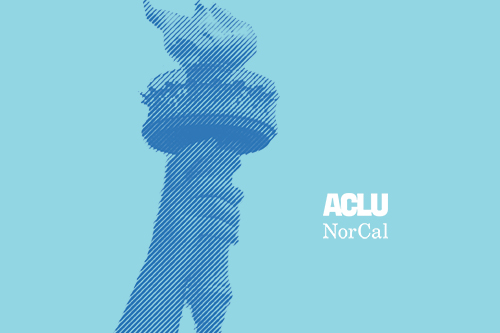Article Media




In mid-October, the Alameda County Sheriff's Office revealed that it was seeking funds to purchase a drone to engage in unspecified unmanned aerial surveillance. The ACLU of Northern California immediately sent a Public Records Act request seeking answers to three basic questions: 1) Are drones really necessary in our community; 2) How much will they cost to acquire, operate, and maintain; and 3) What safeguards will be in place to protect our privacy?
As sheriffs have readily admitted, county jails are not full of individuals who have been convicted of crimes, or even individuals thought to present a high public safety risk to the community. Most people in county jails have not been convicted of a crime. More than 71 percent of the 71,000 Californians held in county jails on any given day are awaiting their day in court. Most of them do not pose a risk to public safety but are stuck behind bars because they simply cannot afford bail.
One year ago today, police fired tear gas, flash bang grenades and lead-filled bags into a massive crowd of Occupy Oakland demonstrators. The ACLU and the National Lawyers Guild sued the Oakland Police Department for its egregious constitutional violations against demonstrators during the October 25, 2011 and November 2, 2011 demonstrations. That lawsuit is ongoing.
You don't lose your First Amendment rights because you have been arrested at a previous demonstration. Censorship in anticipation of possible illegal conduct in the future isn't just creepy, it's also unconstitutional and just plain wrong.
The ACLU and Electronic Frontier Foundation have filed an amicus brief in what will be the first case in the country to address the constitutional implications of a so-called "stingray," a little known device that can be used to track a suspect's location and engage in other types of surveillance. We argue that if the government wants to use invasive surveillance technology like this, it must explain the technology to the courts so they can perform their judicial oversight function as required by the Constitution.
If the First Amendment means anything, it's that students should be able to demonstrate on their own campus without being afraid of police violence. The pepper spraying incident at UC Davis on November 18, 2011 was among the worst examples of police violence against student demonstrators that we've seen in a generation.
Shortly before next week's one-year anniversary of the Oakland Police Department's brutal crackdown on Occupy Oakland, Alameda County Sheriff Greg Ahern announced that he was seeking funds to purchase a drone to engage in unspecified unmanned aerial surveillance.